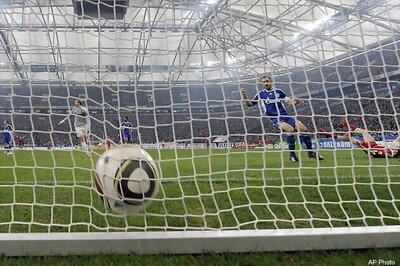
views
Brussels: The United States warned its NATO allies on Wednesday that sharp cuts in military spending on both sides of the Atlantic risked ‘hollowing out’ the alliance in a way that could be devastating to US and European security.
Ahead of his first meeting with NATO defense ministers, new US Defense Secretary Leon Panetta said NATO needed to learn the "lessons of the past" and avoid weakening their militaries by trying to maintain a force they can no longer afford.
The two-day NATO meeting comes as the 28-member alliance is close to concluding an air-and-sea campaign in Libya that saw Muammar Gaddafi overthrown without a single NATO casualty.
"After World War One, after World War Two, after Korea, after Vietnam, after the fall of the Iron Curtain, we made the mistake of hollowing out our forces. That cannot happen again," Panetta said in a speech to the Carnegie Europe think tank.
"Similarly, NATO nations need to send a strong signal of our determination not to hollow out this alliance," he said. "We need to use this moment to make the case for the need to invest in this alliance to ensure it remains relevant to the security challenges of the future."
NATO remains bogged down in a hugely expensive war in Afghanistan, where 10 years of Western fighting has failed to subdue a Taliban insurgency, and officials say the extra effort in Libya has exposed limits that must be addressed.
In the lead-up to a NATO summit in Chicago in May, alliance Secretary-General Anders Fogh Rasmussen wants members to identify projects in which they can cooperate to make best use of resources at a time of severe economic austerity.
"Improving our capabilities is not only necessary -- it is vital," he told a briefing on Monday, adding that Libya and Afghanistan had shown shortcomings among non-US allies in key areas such as unmanned surveillance drones, intelligence gathering and air-to-air refuelling.
"We must spend on priorities and spend together, by financing shared projects that make us all safer."
Rasmussen champions "Smart Defence," saying this does not mean spending more, "but spending more effectively." However, the bid to cut duplication and waste faces foot-dragging by governments anxious to project domestic defence industries.
Pressure is growing now that the United States, which spends far more on defence than its NATO allies combined, faces the prospect of having to cut its spending by as much as $1 trillion over 10 years.
So far, US President Barack Obama and Congress have approved $350 billion in cuts to national security spending. If a Congressional "super committee" fails to reach a deficit deal by the year-end, automatic across-the-board cuts could take another $600 billion from that budget.
This has raised questions about the future of expensive cooperative projects, such as a US-led missile defence initiative, and some in the US Congress have argued for further cuts in the 79,000 US military personnel in Europe.
Panetta underscored the fact that US defence cuts are coming, saying the Pentagon faced "cuts in defence that would be devastating to our national security and to yours as well".
A senior NATO diplomat said the "time in which Europe could rely on the United States to do everything; that era, if it ever existed, now is clearly coming to a close.
"That is why it's so important that we begin a serious discussion about how we can meet our core requirements and field the capabilities we need by working more together. The United States is not going to be filling the gaps forever."
Among the joint NATO projects the United States is particularly keen to see progress this week is Alliance Ground Surveillance, a system that will employ drones to provide a picture of ground conditions from high altitude.
The project, to which 13 countries have committed, would be based around the Global Hawk RQ-4B drone produced by US firm Northrop Grumman (NOC.N). However it has been under discussion for a decade and NATO states have yet to agree how to jointly fund its operation, maintenance and support.
















Comments
0 comment